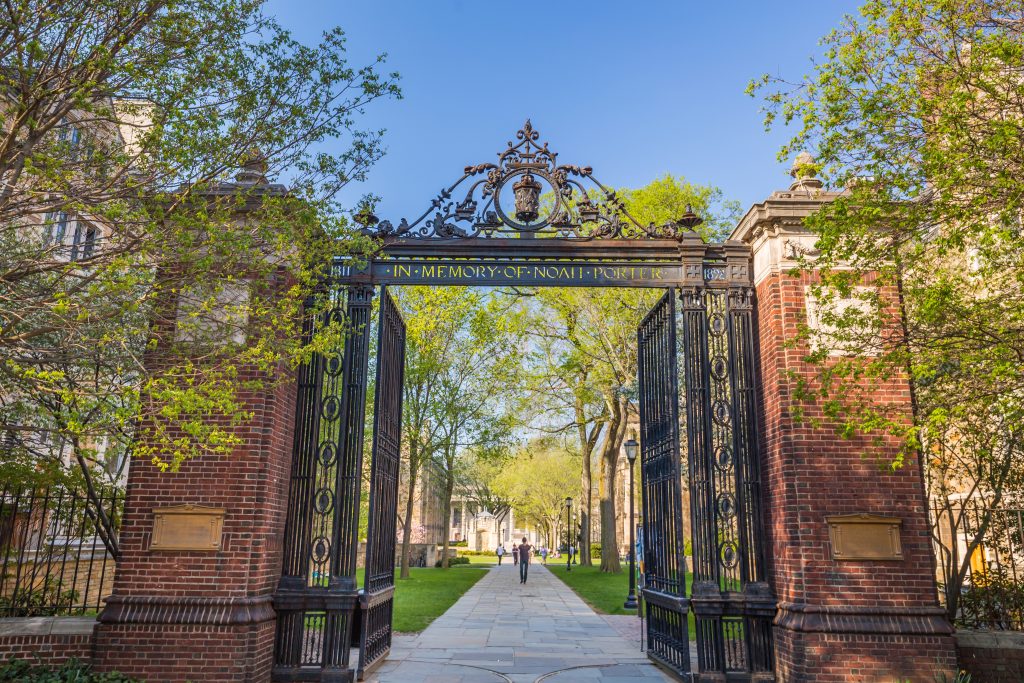Obfuscation and Speculation: A Lack of Transparency Undermines Confidence in the Presidential Search
February 16, 2024
By Will Wang ’26 and Ami Gillon ’27
Yale President Peter Salovey announced on August 31, 2023 that he plans to step down this summer after eleven years leading the University. In describing the search for its next leader, Yale announced that it would weigh voices of the broader university community by holding listening sessions and instating a student advisory committee. Yet, some with close insight into the search process believe these are likely symbolic gestures with little real impact. Further discouraging students and other members of the Yale community who hoped they would have a voice in selecting the new leader of their university, Yale has obscured its search criteria – despite indications that they do, in fact, exist.
Salovey’s tenure has had its ups and downs. Under his leadership, Yale has raised $7.2 billion, expanded undergraduate accessibility programs, and acquired millions of square feet of instructional and research space. Nevertheless, the University has also been embroiled in controversies, from the Halloween costume incident to involvement in the Varsity Blues college admissions scandal.
Soon after Salovey publicly disclosed his decision, Yale’s senior trustee Joshua Bekenstein announced the formation of a 12-member Presidential Search Committee. The committee is composed of eight trustees and four faculty members.
Yet, little is known about the search process itself. Yale, like its peer institutions, has not publicly released its search criteria, nor revealed the mechanics behind its process. We reached out to the Yale Corporation and Presidential Search Committee trustees for clarity about such criteria, but they did not respond to a request for comment.
Some, including Russell S. Reynolds, Jr. ’54, Chairman Emeritus of RSR Partners and founder of Russell Reynolds Associates, wish the process could be more transparent. “Yale needs to write a job description, and the president should be chosen based on that,” Reynolds said. Many current faculty agree. When asked whether the committee should provide specific search criteria for presidential candidates, Yale History and Religious Studies Professor Carlos Eire responded with a resounding “YES.”
Others remain skeptical. They believe that public search criteria would be too nebulous to be effective. “I’m not sure what we would get that would be super helpful,” explained one student with knowledge about the Student Advisory Council’s work. “In [the search committee] announcing their decision, it will be some reflection of what the process included anyway.”
The student’s point may be confirmed by the Search Committee’s recent update. In an update to the University on January 29, Bekenstein provided vague summaries of the Yale community’s suggestions, including “diligence and innovation” and “a leader who embraces and deeply understands Yale’s mission of research, scholarship, and teaching.”
It would be peculiar if the committee had no official search criteria for its consideration. Since 1778, for instance, only one Yale president did not graduate from the University (with the exception of an interim president between 1977 and 1978). The last three presidents—Howard R. Lamar, Richard C. Levin, and Salovey—have all followed a predictable path: a graduate degree at Yale and a subsequent professorship.
Other criteria may also be part of the discussion. The student noted: “If the committee was being honest they would say they have considered the race and sex of prospective candidates. They are legitimate, as are a number of other criteria, but there is definitely a debate to be had about that.”
But perhaps just as practically, the Search Committee may be looking for a fundraiser-in-chief. Despite an endowment value of over $40 billion, a Yale College Council Senator familiar with the search process explained that the trustees “want as much money as possible.” Salovey has surely fulfilled that duty, as he oversaw a doubling in the endowment during his tenure. Though the committee cannot predict how much money a candidate will raise, Reynolds contends that they will look for qualities abundant in Salovey, who is “charismatic and comfortable in his skin.”
After the recent controversies at Harvard University and The University of Pennsylvania, in which their presidents resigned following intense national scrutiny surrounding the December 5th congressional hearing, Yale may be looking for a more anodyne candidate. Yale History Professor John Gaddis would welcome that possibility: “Any political positions taken by the president can cause a huge distraction for the university—so I think it’s best for them not to,” he said. On the other hand, Professor Eire argues that the next president should possess an “absolute commitment to denouncing all manifestations of bigotry, racism, and genocidal agenda.”
While the Search Committee has yet to reveal its criteria, it has made efforts to listen to voices of the Yale community, in the form of Presidential Search Listening Sessions and the institution of the Student Advisory Council(SAC). The SAC recently released a report on their survey that received 1,818 responses from Yale students, which Bekenstein referred to in his January 29 update.
Yet these endeavors have been limited—perhaps only a pretense. The student with knowledge about the Student Advisory Council’s work asserted, “The Committee’s listening sessions were a fig leaf, honestly.” He further stated, “The Student Advisory Council hasn’t impacted the search process much. There’s been extremely limited engagement with the trustees—only one 30-minute Zoom call. It verges on making a mockery of student engagement in the process.”
Although student and alumni voices may have not been prized, the Search Committee did solicit other opinions. In an update to the University on October 2, 2023, senior trustee Joshua Bekenstein wrote that the committee had hired Spencer Stuart, a global search firm, to support their process.
The Presidential Search Committee released a set of nine characteristics it prioritized during the last presidential search. It has not done so this time.
